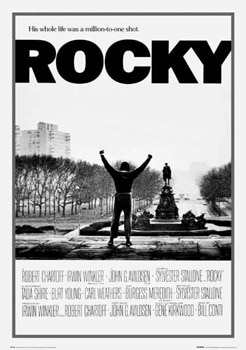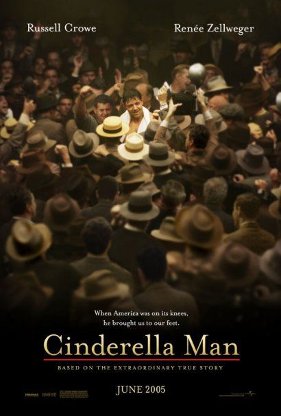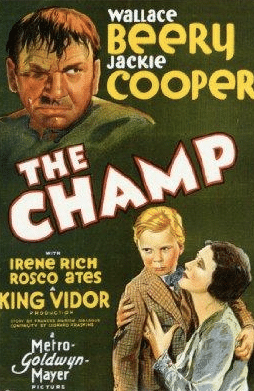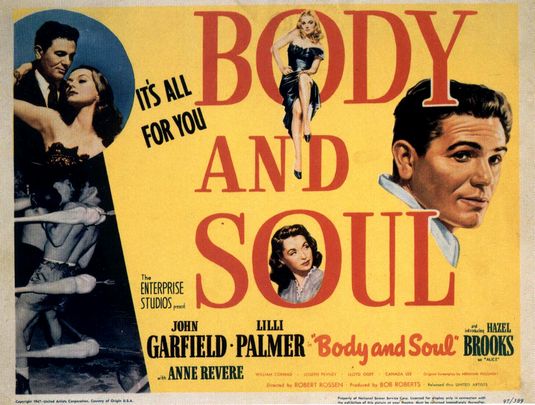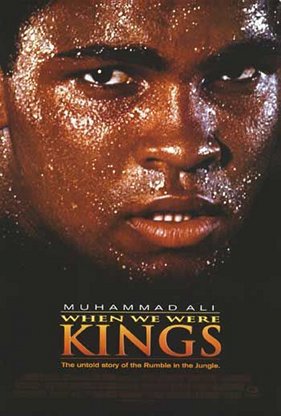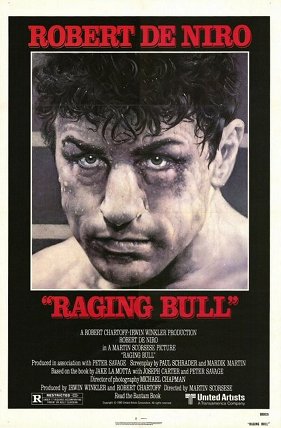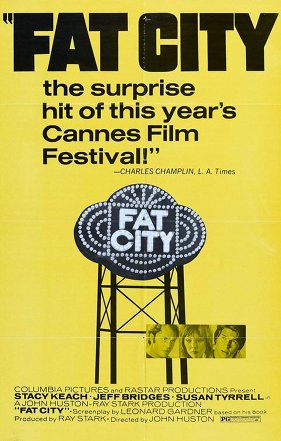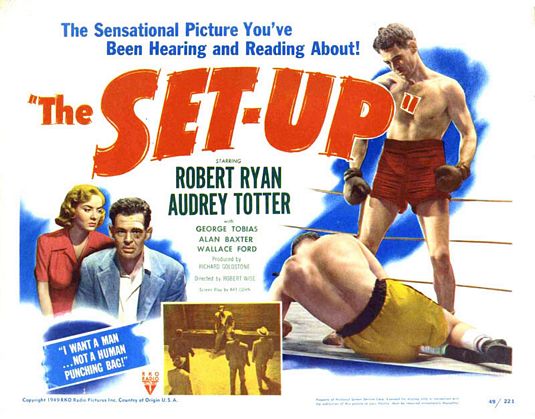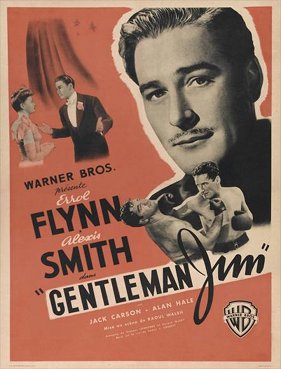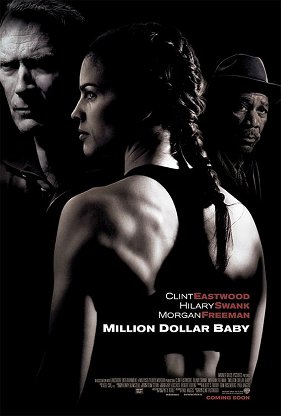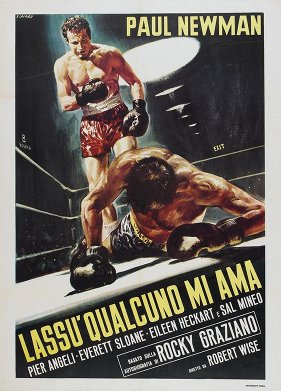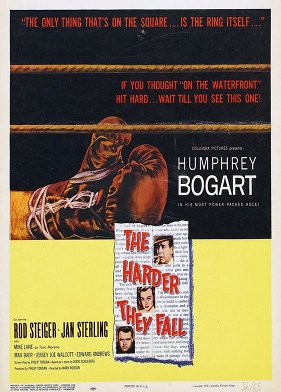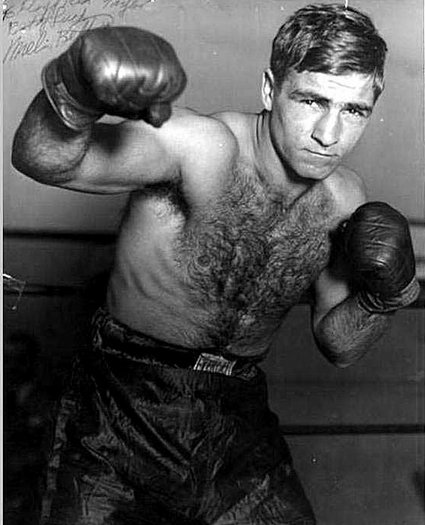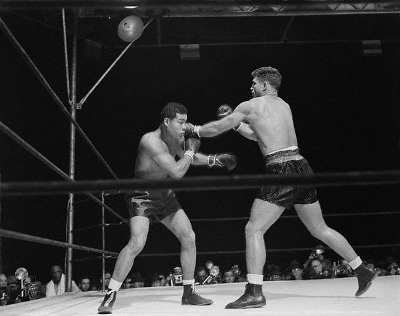
We here at AoM are unabashed fans of the sweet science. Its history and ethos make it a strong contender for being the manliest of sports. For boxing has always transcended the mere confines of the ring, becoming something more, something that approaches the heart of manliness itself. Since its introduction in ancient times, boxing has mirrored the struggle of every man who has ever gone toe to toe with an opponent, be it of flesh or the spirit. Boxing can be seen as a metaphor for every fight in a man’s life, those moments where it doesn’t come down to equipment or trick plays, but all that’s left when life is stripped down to the bare essentials: grit, determination, and heart.
The parallel between boxing and life is also what makes the boxing movie such great cinema. Whether or not you’ve ever stepped into a boxing gym, the themes of human triumph, defeat, and perseverance inevitably resonate. We connect to the characters because we’ve all been the scrappy underdog pinned against the ropes at one time or another. And we all want to believe we can make a comeback and become the champ.
Below we went through 70 years of film history and selected the best boxing movies Hollywood has put out. Are you ready to rumble? Bump gloves and come out swinging. Let’s get started.
Rocky
No way we could make a list of the best boxing movies without kicking it off with the quintessential Rocky series. Now there are plenty of barroom debates on which Rocky is the best. Some guys go with number 2 because Rocky actually beats Apollo Creed. Others claim number 3 is the best simply because Mr. T is in it. While each Rocky movie has its own charm, I still think the first is the best. It has everything a good boxing movie needs: an underdog facing insurmountable odds, a lady to fight for, and a pugnacious trainer who provides motivation and encouragement. If you’re ever feeling like crap, pop in Rocky. You’ll feel truly inspired by the time the credits start rolling.
Cinderella Man
The story of the film itself parallels the story of its protagonist; counted out when it hit the theaters, the movie has gathered more and more fans as time has gone by. And with good reason. It’s an incredibly inspiring story, and it’s absolutely true. After an injury caused James Braddock to plummet from the top of the boxing world, he struggled to survive and provide for his family during the Great Depression. At nearly the breaking point, he gets a chance to fight again. Everyone expected him to be an easy opponent, but a desperate and hungry man can be extremely dangerous. He wins the fight and continues to win, leading him to fight in the heavyweight championship. Braddock’s true story is about more than boxing; his rise, fall, and dream of redemption mirrored the whole nation’s hopes.
The Champ
Most people have probably seen the Ricky Schroder and Jon Voight version of this film made in 1979. While it’s good and will make the most hardened man tear up at the end, most people don’t know that it was a remake of an Oscar winning 1931 film. The original Champ, starring Wallace Berry, follows a down on his luck ex-heavyweight champion, Andy “Champ” Purcell, and his relationship with his loving teenage son, Dink. Heavy drinking and gambling ended the Champ’s boxing career and as a result he and his son end up living in Tijuana, Mexico in squalid conditions. Dink’s now wealthy mother sees the kind of life her son is living and decides to take custody of him. Seeing that he’s about to lose his boy, The Champ gets his act together and starts his comeback, so he can provide the life his son deserves.
Body and Soul
This 1947 classic is about a poor kid who uses boxing as his ticket out of poverty. Charlie Davis lives in the poor and violent neighborhood of Lower East Manhattan. After his dad is killed in a gangster turfwar, Charlie turns to boxing to help him and his widowed mother. Charlie is soon submerged in a world of corruption and shady deals, but the money pours in so Charlie rolls with it. When his backstabbing promoter tells Charlie to throw a championship bout, Charlie must decide between fortune and redemption from his corrupt life. In addition to the great story, Body and Soul has some of the best fight scenes in cinematic history. It literally changed the way boxing movies were choreographed.
When We Were Kings
Regarded as one of the best boxing documentaries ever made, When We Were Kings follows the story of one of the most famous bouts in boxing history: The Rumble in the Jungle between Muhammad Ali and George Foreman. The story behind the fight is epic. Ali’s 32 years old and thought to be past his prime. Foreman is ten years younger and the reigning heavyweight champion of the world. Fight promoter Don King offers the two boxers $5 million a piece to fight each other. Of course, King doesn’t have the cash, so he finds a financial backer in Mobutu Sese Seko, the dictator of Zaire. Ali’s the underdog in the fight, even his own team doesn’t believe he can win. But with his unfaltering confidence and tenacity, Ali comes out on top.
Raging Bull
Based on the autobiography of middleweight boxing champ Jack LaMotta, Raging Bull pulls no punches in its portrayal of a violent sport and the detrimental effects it can have on a man. Robert DeNiro gives a raw performance of a man who’s filled with anger, sexual jealousy, and pure violence. Director Martin Scorsese created a film that’s so violent and disturbing, it sort of leaves you numb at the end. But it causes you to think and reflect upon the ancient Platonic idea that sexual appetite and anger must be tempered with maturity and wisdom or else a man will be driven to ruin.
Champion
This is the film that made Kirk Douglas a star. Douglas plays a ruthless and amoral boxer who was born in poverty and will stop at nothing for fame and fortune. While his confidence and charisma attract a loyal following, he disillusions those who support him with his ingratitude. His callousness doesn’t even stop with his wife whom he betrays as soon as the wedding is over. I won’t tell you the ending, but let’s just say it doesn’t turn out well for Kirk Douglas. Lesson learned? Don’t be a jackass.
Fat City
Fat City isn’t your typical film with a beginning, middle, and end. If you like your movies structured like that, then you probably won’t like this film. Instead, director John Houston (The Maltese Falcon, The Man Who Would Be King) just shows the sad, hard, and empty life of two boxers at different points in their career. Jeff Bridges plays a young up-starter who has some natural talent, but probably won’t go anywhere with his career. Stacy Keach plays an aging former champ whose career is winding down. He drinks hard and lives in a crappy motel. A chance encounter with the young up and comer motivates Keach’s character to fight one more bout. Again, there really isn’t a happy ending with this movie, but it definitely makes you reflect about what sort of life you’re living.
The Set-Up
Fans of film-noir and boxing? Then The Set-Up is for you. Like most film noir flicks, The Set-Up has a dark and cynical view of the world. The film follows an over-the-hill boxer named Stoker Thompson whose career is at a dead-end. He loses every match he fights and there’s no prospect for him to start winning again. But when his manager betrays him by taking money to throw a fight, Thompson’s anger pushes him to kick ass one more time. I won’t ruin the end, but let’s just say it’s bittersweet.
Gentleman Jim
Starring Errol Flynn (owner of one of the manliest mustaches of all time), Gentleman Jim is based on the life of heavyweight boxing champ, James J. Corbett. Corbett’s career lasted from 1886 to 1903. It was a time when boxing was illegal in many states and in serious need of change in order to survive. Many credit Corbett for bringing boxing into the 20th century and making it a legitimate sport and not some back alley spectacle. Corbett introduced a more scientific style of boxing that emphasized finesse over the brawling approach of earlier fisticuffers. He also helped improve the image of boxing by encouraging fights under the Marquess of Queensberry rules and by being a classy, classy gentleman. Hence his nickname “Gentleman Jim.” But perhaps his biggest claim to fame is being the only man to defeat John L. Sullivan. Learn all about it by watching this movie.
Million Dollar Baby
While the issue of euthanasia takes a front seat in Million Dollar Baby, lurking underneath is a poignant story about human relationships in all their ugly and beautiful glory. Clint Eastwood plays a gruff, guilt-laden fight trainer named Frankie Dunn. After a former fighter (played by Morgan Freeman) loses his sight in a match, Dunn becomes guarded and holds his fighters back in order to prevent them from getting hurt. On top of that, he’s estranged from his daughter and writes her every week in hopes that she’ll write back. But Dunn’s life changes when Maggie Fitzgerald walks through his gym door asking him to train her. Dunn balks at first but soon relents in face of Maggie’s tenacity. Maggie’s got troubles at home, too. A sweet father-daughter like relationship soon forms between Dunn and Fitzgerald. Maggie helps Frankie come out of his shell, and Frankie gives Maggie the emotional support that her family doesn’t give.
I haven’t been a fan of Hilary Swank since she ruined the Karate Kid series, but Eastwood’s manliness can cover a multitude of sins.
Somebody Up There Likes Me
Based on the troubled life of middleweight boxing legend Rocky Graziano, Somebody Up There Likes Me was one of Paul Newman’s first starring roles. As a youth, Graziano lives a life of reckless abandon and crime. He joins a street gang and ends up in prison. After he does his time, Graziano gets drafted into the army. Of course he doesn’t take well to the structure and authority of military life, so Graziano goes AWOL only to end up boxing to make money for food. He discovers he’s got a natural talent for the sport and makes a career out of it. But the siren call of money leads Graziano to participate in a series of fixed fights. But thanks to his sweetheart, Graziano develops a conscience and some self-respect. He leaves behind the world of thrown fights and makes it as a legit boxer.
Trivia: This film was also the pictorial debut of bad-ass Steve McQueen.
Unforgivable Blackness: The Rise and Fall of Jack Johnson
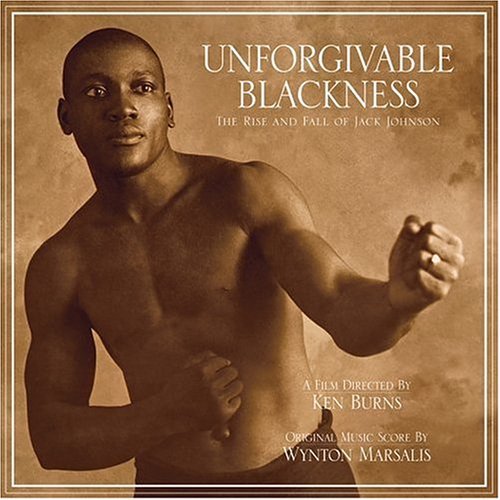
Three words: Boxing. Ken. Burns. That’s really all you need to know since everything Mr. Burns does it certifiably awesome (well, Jazz wasn’t that hot). Burns uses his signature style to cover the life of one of the most interesting characters in sports history: Jack Johnson. Boxing is really just the backdrop in this documentary, the stage on which the dynamics of race relations in the early 20th century can be explored. Johnson pushed through bigoted barriers and flaunted social conventions of the day, rebelling not as a civil rights activist, but as a man who simply wanted to live exactly how he pleased. He was a complicated guy, a man of both talent and bravado who could be proud to be a black boxer while also denying fellow African-American fighters the chance for similar fame and achievement. Burns deftly explores these issues and more during this almost four hour biography.
The Harder They Fall
The Harder They Fall was Humphrey Bogart’s final screen appearance. Bogart plays an out-of-work newspaper reporter named Eddie Willis who takes a job as a press agent promoting fixed fights for a boxer that has no talent for the sport whatsoever. However, the fighter doesn’t know that the fights are fixed and he genuinely thinks he’s beating his opponents. When this naive kids goes against the reigning champ, who promises to pummel him to death, Willis must make the decision whether to tell the kid about the fix and save him or keep his mouth shut and make a boat load of money.
Listen to our podcast on the rise and fall of the great American heavyweight:


